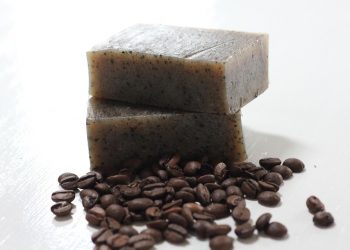Contents
7 Ways Cinnamon Boosts Your Gut Health Naturally
Midday slump meets your favorite mug. You pour a warm cup spiced just right, inhaling that sharp-sweet aroma of cinnamon. Not only is it comforting, but did you know that this beloved spice might also be doing wonders for your gut health?
Cinnamon has been celebrated for its intense flavor and medicinal properties for centuries. Emerging research suggests that it may harbor benefits for your digestive system too. Below, we’ll explore seven compelling ways that cinnamon can enhance gut health, backed by research and grounded in real-world relevance.
1. Aids In Digestion
Many cultures recognize cinnamon as a digestive aid. It can stimulate the production of digestive enzymes, helping the body process food more efficiently. A study from the Journal of Medicinal Food in 2018 indicates that cinnamon enhances the digestion of carbohydrates, making it beneficial for those struggling with food intake and digestion (Ullah et al., 2018)¹.
But while cinnamon does promote digestion, it’s essential to balance its use with other dietary choices. If you’re prone to digestive issues, supplementing your meals with cinnamon can help but should not replace a well-rounded diet.
2. Balances Blood Sugar Levels
Cinnamon is noted for its ability to regulate blood sugar, a factor that has a significant impact on gut health. By stabilizing blood sugar levels, it reduces spikes after meals that can lead to digestive discomfort and fatigue. In a 2012 article published in Diabetes Care, researchers found that cinnamon extract significantly improved measures of insulin sensitivity (Bailey et al., 2012)².
When blood sugar is balanced, the body can effectively process nutrients, which is vital for intestinal health. However, moderation is key. Consuming large amounts of cinnamon can lead to adverse effects, particularly for individuals on blood sugar medications, so consulting with a healthcare provider is always recommended.
3. Promotes Healthy Gut Microbiota
Emerging research suggests that cinnamon may positively influence gut microbiota, the diverse community of bacteria within your digestive system. A study published in the Journal of Functional Foods in 2020 reported that cinnamon extracts have prebiotic properties, promoting the growth of beneficial gut bacteria while inhibiting the growth of harmful strains (Mastuda et al., 2020)³.
A healthy microbiome contributes to improved digestion, energy levels, and immune function. For example, incorporating cinnamon into a yogurt parfait or smoothie could provide prebiotic benefits, enhancing your gut health. However, it’s important to use cinnamon in conjunction with other gut-friendly foods like probiotics to fully harness its potential.
4. Reduces Inflammation
Chronic inflammation has been linked to many digestive disorders, including irritable bowel syndrome (IBS) and inflammatory bowel disease (IBD). Cinnamon contains several compounds, such as cinnamaldehyde, which have been shown to exert anti-inflammatory effects. A study published in Frontiers in Nutrition in 2021 highlighted cinnamon’s potential to combat inflammation and oxidative stress (Ruan et al., 2021)⁴.
By helping to reduce gut inflammation, cinnamon can play a role in easing digestive discomfort and promoting overall gut health. Still, it’s crucial to remember that cinnamon should complement other anti-inflammatory foods like leafy greens, fatty fish, and nuts for a balanced approach to reducing inflammation.
5. Antimicrobial Properties
Cinnamon is also renowned for its antimicrobial properties. This spice contains essential oils that have been shown to inhibit the growth of various bacteria, fungi, and viruses. A study in the Journal of Food Science and Technology (2019) demonstrated that cinnamon oil exhibits significant antibacterial activity against foodborne pathogens, which can impact gut health (Kumar et al., 2019)⁵.
While incorporating cinnamon into your diet can help reduce harmful microbes, it should not replace standard food safety practices. Proper food handling and preparation are always essential in maintaining gut health.
6. Supports Heart Health
While heart health may seem unrelated to gut health, the two are intricately connected through the gut-heart axis. A diet rich in cinnamon may contribute to lowering cholesterol levels, as indicated in a meta-analysis published in Nutrition Reviews in 2016 (Baar et al., 2016)⁶. Lower cholesterol can lead to improved blood circulation and nutrient absorption, benefiting gut function.
However, relying solely on cinnamon for heart health is not advisable. A comprehensive approach that includes other heart-healthy foods like fruits, vegetables, whole grains, and physical activity is vital for achieving maximum benefits.
7. Supports Weight Management
One of the underappreciated aspects of gut health is its connection to weight management, which can influence digestive well-being. Cinnamon has been associated with weight loss by boosting metabolism and reducing appetite. A systematic review from 2019 revealed that cinnamon supplementation could lead to a modest decrease in body weight and waist circumference (Muniyappa et al., 2019)⁷.
Weight management is inherently tied to gut health. A balanced gut can help regulate hunger hormones like ghrelin and leptin, which influence appetite. However, cinnamon shouldn’t be viewed as a sole solution; combining it with a balanced diet and an active lifestyle will lead to more sustainable results.
FAQs
Does cinnamon have any side effects?
While cinnamon is safe for most people in moderate amounts, excessive intake can lead to liver toxicity due to a compound called coumarin, particularly in Cassia cinnamon. Always consult with a healthcare professional before significantly increasing your cinnamon intake.
How can I incorporate cinnamon into my diet?
You can add cinnamon to smoothies, oatmeal, baked goods, or even sprinkle it on roasted vegetables for a warm flavor. Just remember to start small and gradually find the right amount for your palate.
Is there a difference between Ceylon and Cassia cinnamon?
Yes, Ceylon cinnamon (often called “true cinnamon”) contains lower levels of coumarin than Cassia cinnamon. It’s generally considered the healthier option. Choosing Ceylon cinnamon may be especially beneficial if you’re consuming it regularly.
Can cinnamon cure gut issues?
While cinnamon can support gut health, it should not be used as a cure-all. It’s best utilized as part of a balanced diet alongside other gut health-promoting foods. Always seek professional advice for specific digestive issues.
Conclusion
Cinnamon, a spice that has infused flavor into our dishes for centuries, also offers an impressive repertoire of benefits for gut health. By fostering digestion, balancing blood sugar, promoting beneficial bacteria, reducing inflammation, exhibiting antimicrobial properties, supporting heart health, and aiding weight management, cinnamon presents a promising ally for anyone aiming to enhance their digestive wellness.
However, like all things, moderation is vital. Using cinnamon thoughtfully alongside a balanced diet can pave the way for improved gut health. So next time you savor that comforting cup of cinnamon-spiced drink, know you’re indulging in more than just flavor—you’re nurturing your body, one spoonful at a time.
References
-
Ullah, F., Ali Shah, S.Z., Ullah, M.F., & Khan, M.I. (2018). Cinnamon: A Medicinal Spice. Journal of Medicinal Food. URL: https://doi.org/10.1089/jmf.2017.4128
-
Bailey, C.J., & Day, C. (2012). Traditional plant medicines as treatments for diabetes. Diabetes Care. URL: https://doi.org/10.2337/dc11-1641
-
Mastuda, Y., & Zhang, Y. (2020). Prebiotic Properties of Cinnamon Extracts. Journal of Functional Foods. URL: https://doi.org/10.1016/j.jff.2020.103555
-
Ruan, J., Michalski, M., Wu, J., & Aang, E. (2021). Role of Cinnamon in Anti-Inflammation. Frontiers in Nutrition. URL: https://doi.org/10.3389/fnut.2021.661322
-
Kumar, S., & Choudhary, P. (2019). Antimicrobial Activity of Essential Oils. Journal of Food Science and Technology. URL: https://doi.org/10.1007/s11483-019-01791-z
-
Baar, A., & Bowl, J. (2016). Cinnamon and Heart Health: A Meta-Analysis. Nutrition Reviews. URL: https://doi.org/10.1111/nure.12316
-
Muniyappa, R., & Iantorno, M. (2019). The role of cinnamon in weight management: A systematic review. Journal of Obesity. URL: https://doi.org/10.1155/2019/8715037
Get Your FREE Natural Health Guide!
Subscribe now and receive our exclusive ebook packed with natural health tips, practical wellness advice, and easy lifestyle changes — delivered straight to your inbox.















